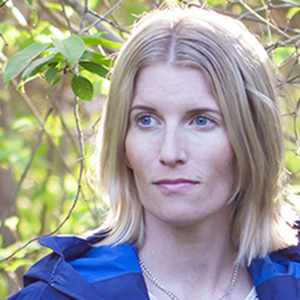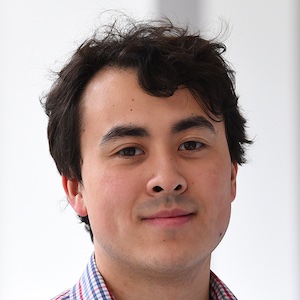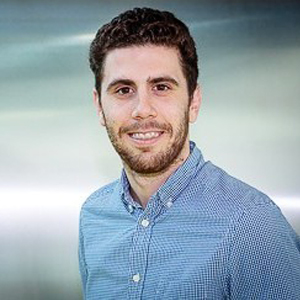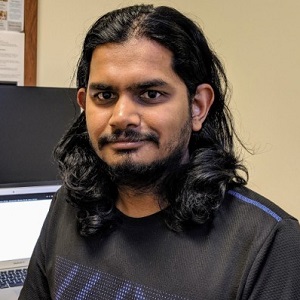Population genomics is the large-scale comparison of DNA sequences of populations. Using advanced computational methods, some fellows elucidate the underlying mechanisms that contribute to evolution, selection and spread of successful bacterial lineages, with an emphasis on antimicrobial resistance. Another fellow below aims to define cell-of-origin of brain tumors based on cancer genomics.
Anna Pöntinen

Country of origin: Finland
Host: Prof Jukka Corander
Group: Department of Biostatistics
Thematic area: Bacterial population genomics and transcriptomics
Project title: Multi-layer omics to understand the evolutionary success of E. coli ST131 – ExPEC population genomics study
My project
Multi-drug resistant (MDR) Escherichia coli is one of the WHO global critical priority pathogens. Our current understanding of the evolution, selection and rapid dissemination of high-risk bacterial clones is limited.
The project aims to elucidate the underlying mechanisms that contribute to these features of successful bacterial lineages by characterizing population-level variation of the genome and transcriptome of the major MDR E. coli ST131 clone.
This data can be further employed in designing optimized treatment protocols that may limit the evolution and spread of high-risk clones and in predicting future emergence of resistance to last-resort antibiotics in E. coli ST131.
Martin Burkert

Country of origin: Germany
Host: Sebastian M. Waszak
Group: Computational Oncology, Centre for Molecular Medicine Norway (NCMM)
Thematic area: Systems genetics
Project title: Computational inference of the cell-of-origin of brain tumours
My project
Patients with brain tumours have one of the highest tumour-associated mortality rates due to missing effective treatment strategies. Many brain tumours arise from cells of the developing brain and their treatment response is likely reflected in the tumour cell-of-origin, the cell type from which the malignancy developed. During the course of my project I will develop computational methods to investigate the cell-of-origin of brain tumours, study the molecular properties of these cells, and relate this information back to clinical outcome.
Inferring the cell-of-origin of brain tumours will help to understand the cellular states of malignant transformation and provide a basis for designing novel targeted therapies based on molecular properties of these cells.
Neil MacAlasdair

Country of origin: Canada
Host: Jukka Corander, Department of Biostatistics
Thematic area: Bacterial Population Genomics
Project title: Understanding the effects of selection and recombination on the evolutionary trajectories of pathogenic bacteria.
My project
I use large-scale whole-genome sequenced bacterial datasets to investigate a variety of fundamental questions about the evolution of bacteria. For instance, how does the structure of a globally distributed bacterial population affect how it responds to natural selection? What is the evolutionary role of gene exchange, within and between bacterial species? In particular, my research includes, but is not limited to, studying a a dataset of over 15,000 sequenced Neisseria meningitidis, a globally distributed opportunistic pathogen that causes meningitis. It, like many difficult-to-treat pathogens, is controlled through large-scale vaccination campaigns which exert a strong selective pressure on the global population.
Public health measures, including vaccination, remain one of the most effective methods of controlling infectious disease. The long-term success of public health efforts, however, rely upon a deep understanding of the evolution of the disease-causing organism. My research into the evolution of pathogenic bacterial will allow for informed public health interventions.
Sergio Arredondo Alonso

Country of origin: Spain
Host: Prof. Jukka Corander, Institute of Basic Medical Sciences, University of Oslo Prof. Stephen D Bentley, Wellcome Sanger Institute
Thematic area: Bacterial population genomics, evolutionary modeling
Project title: Unravelling the dynamics of multidrug-resistance plasmid dissemination in the nosocomial pathogen Escherichia coli
My project
Escherichia coli is a bacterial commensal pathogen representing the most common cause of bloodstream and urinary tract infections in the developed world. Emerging resistance against last-line antibiotics, hinders the treatment of life-threatening infections in endemic areas such as South-East Asia.
Many of these resistance genes are present in plasmids, bacterial sequences that can be horizontally transferred between different lineages of E. coli or even across distinct bacterial species. Using the latest sequencing technologies, we aim to obtain the plasmid sequences present at more than 14,000 E. coli isolates.
This will be essential to identify if there are plasmids conferring resistance to last-line antibiotics which are shared and transmitted between distinct E. coli lineages or isolation sources.
This project has the potential to reduce the dissemination of antimicrobial resistance genes mediated by plasmid sequences. Ultimately, we aim to provide novel targets to disrupt plasmid replication and/or transmission, with potential clinical and industrial interest.
Sudaraka Mallawa Arachchi

Country of origin: Australia
Host: Jukka Corander, Department of Biostatistics
Group: Probabilistisk inferens laboratorium
Thematic area: Pathogen Genomics
Project title: Statistical methods to detect signals of epistasis and co-selection in bacterial pangenomes.
My project
In bacteria, evolution and selection play vital roles in shaping traits such as antibiotic resistance. Driven by the surge in genomic sequencing, many new methods have emerged to study these phenomena, and one exciting method: "Genome-Wide Epistasis Studies (GWES)", involves searching the bacterial genome to detect signals of selection. GWES is extremely challenging due to issues such as high genome linkage and plasticity. However, pinpointing these regions can generate pathways into genomic medicine and developing new antibiotics. We aim to design new open source software tools to perform GWES and apply them to cutting-edge genomic datasets of major human pathogens.
The accurate identification of genomic regions that undergo selection in major human pathogens can pave the way to design new antibiotics and other treatments. The open source release of GWES tools will benefit the entire bacterial genomics research community.